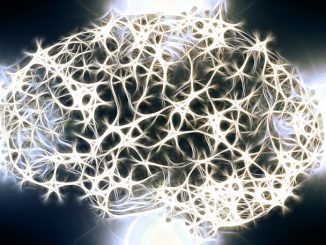
A team of researchers from Columbia University may have taken a vital step that could pave the way for the development of more effective treatment methods against age-related diseases. They have identified a specific gene that seems to have some control over how fast one’s brain ages.
According to study co-leader Dr. Herve Rhinn (assistant professor of pathology and cell biology in the Taub Institute for Alzheimer’s Disease and the Aging Brain at Columbia University Medical Center in New York), although specific genes may contribute to the development of neurodegenerative disease — for example, the gene known as apolipoprotein E (APOE) is associated with higher risk of Alzheimer’s disease — those genes only play a small role; it is still aging which plays a more significant part. There’s something in the brain that changes as we age, and this is what makes us more vulnerable to brain disease.
Based on the team’s findings, that ‘something’ might be the genetic expressions of TMEM106B.
As co-author Dr. Asa Abeliovich (professor of pathology and neurology at the Taub Institute) pointed out — in a group of seniors, some look older and some look younger. As it turns out, such difference can also be observed in our brain. Specifically, our frontal cortex — the part of the brain associated with higher cognitive functions including memory-related tasks, creativity, planning, judgement and decision-making – also show such difference.
In other words, the frontal cortex of some seniors look older than the frontal cortex of others, even if they are of the same age. And it looks like it is the presence of the gene TMEM106B that’s causing this difference (whether partly or entirely still needs further study).
To come up with their findings, the team examined and analyzed brain tissue samples from 1,904 deceased individuals who did not have any neurodegenerative disease. They tried looking for genetic markers that indicated increased biological aging among those who had the same chronological age. To differentiate — biological age means age based on appearance while chronological age refers to a person’s true age.
They found about 100 genes that seemed to work differently as people got older. Among these gene variants, it was TMEM106B that stood out. While TMEM106B has previously been associated with a rare form of dementia, the team’s findings suggests that the gene might have more of an effect on brain age than anything else.
TMEM106B has two forms — one protects against aging while the other accelerates aging. It’s a very common gene, with about one-third of the general population having two copies of it and another one third having a single copy.
According to Dr. Abeliovich, the effect of TMEM106B begins to show when a person reaches the age of 65. “Until then, everybody’s in the same boat, and then there’s some yet-to-be-defined stress that kicks in. If you have two good copies of the gene, you respond well to that stress. If you have two bad copies, your brain ages quickly,” he explained in a statement issued.
If the team can also figure out what that ‘stress’ is, this research could become even more of a game-changer than it already is.
The findings were recently reported in the journal Cell Systems.
References: Livescience




Leave a Reply